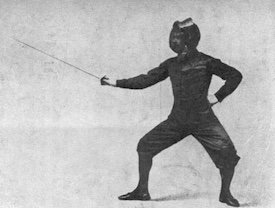I would guess you do so by politely asserting that a fallacy exists - and providing actual information to support your assertion.
For example, Gregorio asserts:
Yes, there is *sometimes* something there (>20kHz) that "obviously" modulates in time with the energy peaks of the music.
How do you jump from this fact to the conclusion that's "it's clearly NOT random noise"?
Well, here's a scientific response to that.....
The simplest answer is self-referential (it's a mater of definition)...
If the signal is modulated, then that modulation constitutes information...
Therefore, since the signal contains information, it is not "random".
(By definition, something that contains information is not "purely random".)
Perhaps he misspoke.... and intended to say that: "He is
personally certain that it contains no
useful information."
If so, then he is entitled to his opinion on that subject, but should avoid asserting it as established fact.
In some contexts noise is defined as the opposite of information....
So, also in general, pure noise would contain no information.
(In reality, with proper analysis, the noise itself will give you information about the processes that generated it.)
But, if that noise is modulated, then that modulation itself contains more information.
If the modulation was deliberate, it has added both the information we chose to modulate onto the signal, and information about our modulation method.
If the modulation was unintentional, then, at a minimum, it contains information about the mechanism that caused it.
So, if we have what appears to be "noise that is modulated in time with the musical peaks"...
Then it contains significant information about how and why those musical peaks were modulated.
(We also have an excellent starting point for our analysis since we have the audible portion of the overall sound spectrum to use for reference.)
To use the example of the Plangent process...
Record bias serves a purpose in terms of tape magnetization - but, as far as the audio signal is concerned, it is noise.
However, some smart fellow noticed that, not only was that noise present, but it was "modulated" by variations in tape speed.
Then, by analyzing that "noise", and precisely how it was modulated, he figured out how to extract useful information about errors in tape speed.
This information is then used by the rest of the process to make audible corrections to the audible portion of the audio spectrum.
(It would be fair to state: "The Plangent process makes audible corrections - based on the analysis of the unintended modulation of noise present on the tape.")
To choose another potential example.
I may notice that the background noise level in the room rises and falls slightly at a certain frequency.
(I would detect this by looking for patterns modulated into the background noise.)
From that, I may determine that a ceiling fan, or something similar, is modulating the noise in the room (a fan is a series of moving reflective surfaces).
And, if I were to detect this, I would look for similar modulations in the levels of audio tracks recorded in that room.... and potentially correct them if I find them.
As a result, I may be able to improve the quality of those audio tracks, by removing an error introduced when they were initially recorded.
This is simply an advanced version of "establishing a noise profile and using it as a basis for corrections".
And, again, the fact that this takes a good programmer a week to do today...
In no way suggests that we won't see it in a $125 AVR in five years.
How do you refute the use of a fallacy without referring to the fact that a fallacy is being employed? How do you refute a ridiculous assertion without explaining/demonstrating why it's a ridiculous assertion?
G























 .
.